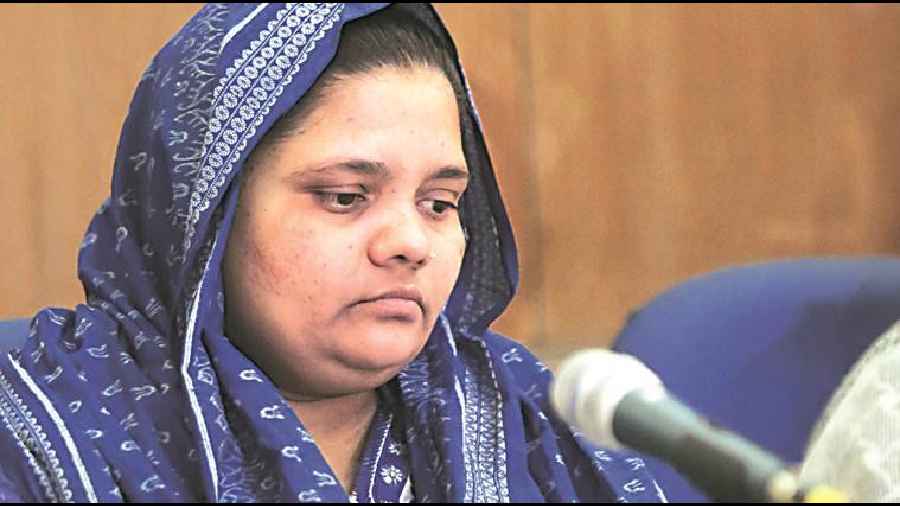The lawyer for one of the 11 rape-and-murder convicts in the Bilkis Bano case has said “with full responsibility” that the Centre’s approval was “absolutely, absolutely” taken before the Gujarat government granted them remission.
The repeated assertions by Rishi Malhotra, the lawyer, came at a panel discussion hosted by journalist Barkha Dutt on the Mojo digital news platform.
So far, none from the central government has publicly commented whether permission was sought before freeing the 11 men. They had been convicted of gang-raping a five-month-pregnant Bilkis during the 2002 Gujarat riots and killing several members of her family, including her three-year-old daughter.
Although the panel discussion featuring Malhotra’s unequivocal declaration has been in the public domain for nearly 24 hours, a Union home ministry spokesperson did not reply to this newspaper’s calls or a WhatsApp message seeking his response to Malhotra’s claims.
The convicts’ release had cast Prime Minister Narendra Modi in the direct line of a backlash as the remission was in sharp contrast with his stress on “nari shakti (women power)” in his speech to mark the 75th anniversary of Independence.
Malhotra, whose representation on behalf of one of the convicts had prompted the Supreme Court to ask the Gujarat government to decide on the remission pleas, was part of a panel discussion that also had CPM leader Subhashini Ali who has moved the Supreme Court against the remission.
Excerpts from the panel discussion, hosted by Dutt on Mojo, follow:
Dutt: Under the rules, it also says that the central government has to give its approval (for such release, as a central agency — the CBI — had probed the case). Are you aware that the central government has given its approval?
Malhotra: That was taken. Absolutely, absolutely taken under Section 435 CrPC (which mandates that the state government act after consultation with the Centre in certain cases).
Dutt: You are saying the central government has given its approval?
Malhotra: Please record my statement. I am making the statement with full responsibility — the central government concurrence as required by the law was taken….
Dutt: I just want to take this statement on record because it is the first official confirmation we have that the central government approval, as mandated under the 1992 law, was taken. Mr Malhotra, can you reconfirm that?
Malhotra: Absolutely.
Dutt: Absolutely. So both the consent of the trial court presiding judge and the consent of the central government was taken. You are saying that with all responsibility.
Malhotra: Yes. And I believe that when the state government as well as the Union of India will file their affidavits, these things will be on record.
On August 25, the Supreme Court issued notices to the Centre and the Gujarat government, while hearing a PIL from Ali and others challenging the remission, and told them to reply within four weeks.
When Dutt asked whether the 11 men would be available if the Supreme Court needed them to be sent back to prison, Malhotra replied: “100 per cent. In fact, again the same thing. If…. It has to be the policy that is applicable at the time of conviction. And at that time, the policy said 14 years on…. They were released after 15-and-a-half years of actual sentence….”
Other than the PIL by Ali, academic Roop Rekha Verma and journalist Revati Laul, Trinamul Congress MP Mahua Moitra has petitioned the Supreme Court challenging the release of the 11 convicts. They have underlined that the Centre’s permission was needed because the case had been investigated by a central agency, the CBI.











